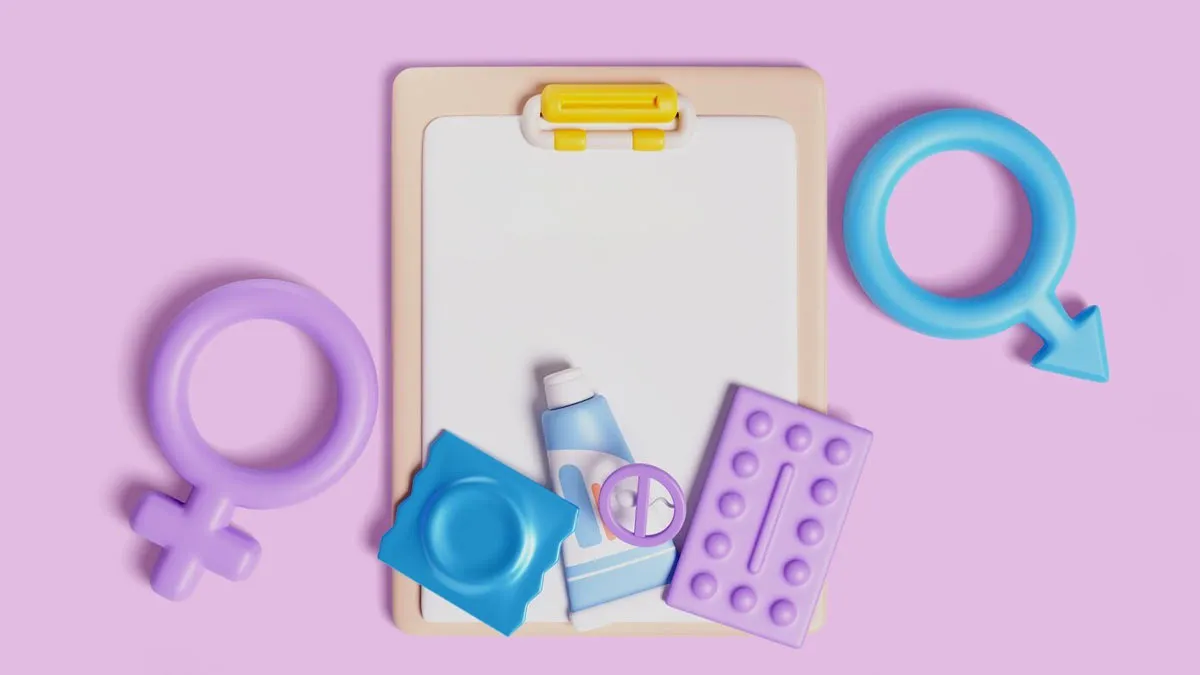
Can we get pregnant without intercourse? Such questions are still very much common among teens. And the sad part is, there is no one to answer it for them. The stigma around sexual education in India makes it a daunting task for the youth to reach out to their superiors with related queries. This is why, time and again, we are reminded about the importance of sex education in schools. Recently, the Supreme Court (SC) has called for a shift in how we approach sex education in our country. The SC is recommending early introduction of sex education in school, and stated it should not be “restricted to Classes IX to XII.”
Table of Content:-
To get a better understanding of how this move, if implemented, can benefit the society, we reached out to Dr Pooja Bansal, Consultant Gynecologist, Laparoscopic Surgeon, and High-Risk Pregnancy Specialist at Cloudnine Group of Hospitals, Nerul, NAVI Mumbai.
What Is Sex Education?
Sex education refers to the teaching and learning of a broad variety of topics related to sex and sexuality. It covers values and beliefs about those topics as well, which helps people gain skills that are needed to navigate relationships with self, partners, and community, and effectively manage one’s own sexual health.
Comprehensive sex education refers to K-12 programs that cover a broad range of topics including:
- Human development (puberty, anatomy, sexual orientation, and gender identity).
- Relationships (self, family, friendships, romantic relationships etc).
- Personal skills (communication, boundary setting, negotiation, and decision-making).
- Sexual behavior (the full spectrum of ways people choose to be, or not be).
- Sexual health (STIs, birth control, pregnancy, and abortion).
- Society and culture (media literacy, shame and stigma, reproductive freedom etc.).
Why Early Sex Education Can Be A Game Changer
Dr Bansal shared that children today are exposed to information at a much younger age — often through the internet, social media, and peer conversations. She added that, unfortunately, much of this information is inaccurate or incomplete.
“Introducing structured, age-appropriate sex education from primary school can ensure that children receive the right guidance from trusted sources — their schools and teachers. Early education helps children understand concepts like personal boundaries, consent, and respect for others, long before they reach adolescence. This foundation can shape healthier attitudes toward their own bodies and relationships, reduce stigma around sexual health, and enable them to make informed decisions as they grow older,” notes Dr Bansal.
The expert, thus, noted that if the Supreme Court implements this step, then it would be a landmark step toward building a healthier, more informed generation. “Early sex education is not just about teaching children the biology of reproduction; it’s about empowering them with accurate knowledge, helping them understand their bodies, fostering respect for others, and protecting them from exploitation and misinformation,” Dr Bansal further explained.
Importance Of Early Knowledge On Sexual Health
Sexual health is a crucial component of overall health and well-being. Dr Bansal states that when children are introduced to concepts like body autonomy, hygiene, and emotional changes early, they are better equipped to:
- Recognize unsafe touch or abuse.
- Understand the difference between healthy and unhealthy relationships.
- Build body confidence and self-respect.
- Manage puberty-related physical and emotional changes without fear or shame.
- Early awareness helps in normalizing conversations around menstruation, reproduction, and sexuality, which are often treated as taboo in many households.
Also Read: World Sexual Health Day: Understanding the 7 P’s for a Healthier Intimacy
Benefits Of Sex Education
Comprehensive sex education brings multiple benefits for both individuals and society. Our expert jots them down for us:
- Better health outcomes: Early knowledge can reduce rates of sexually transmitted infection and unintended teenage pregnancies.
- Emotional preparedness: Students learn to handle peer pressure, consent, and emotional changes more responsibly.
- Reduction in gender-based discrimination: Awareness encourages respect, equality, and understanding of gender identities.
- Improved communication: Open dialogue on sexual health reduces embarrassment and encourages children to seek help or report abuse when needed.
- Overall growth: Sex education, when introduced gradually and age-appropriately, helps children grow into informed, respectful, and confident adults.
Also Read: Can You Get STDs Without Intercourse? Find Out Here
Combating Sexual Crimes, Taboos And More
There are plenty of misconceptions among youth regarding sexual health. Lack of proper knowledge and awareness often makes them feel lost and drives them towards wrong decisions. Not to forget, the taboo and stigma attached to sex also makes it a hush hush topic, even today. Dr Bansal believed that early sex education can break this cycle by encouraging children to ask questions and receive scientifically accurate answers.
Not just this, it might even help combat crimes. “When children learn early about boundaries, consent, and respect, they are less likely to be victims or perpetrators of sexual violence. It also empowers them to speak up and seek help if they face abuse. Furthermore, by promoting gender sensitivity and respect from a young age, early sex education can help reduce sexual harassment and crimes in the long run,” explains Dr Bansal.
Conclusion
Introducing sex education early in schools is not just a policy decision — it is a preventive health strategy, a social reform, and a protective shield for children. It fosters a culture of awareness, safety, and respect.This move can transform how society views sexual health — from silence and shame to knowledge and empowerment.
Also watch this video
How we keep this article up to date:
We work with experts and keep a close eye on the latest in health and wellness. Whenever there is a new research or helpful information, we update our articles with accurate and useful advice.
Current Version
Oct 14, 2025 09:35 IST
Modified By : Chanchal SengarOct 14, 2025 11:13 IST
Published By : Shruti Das